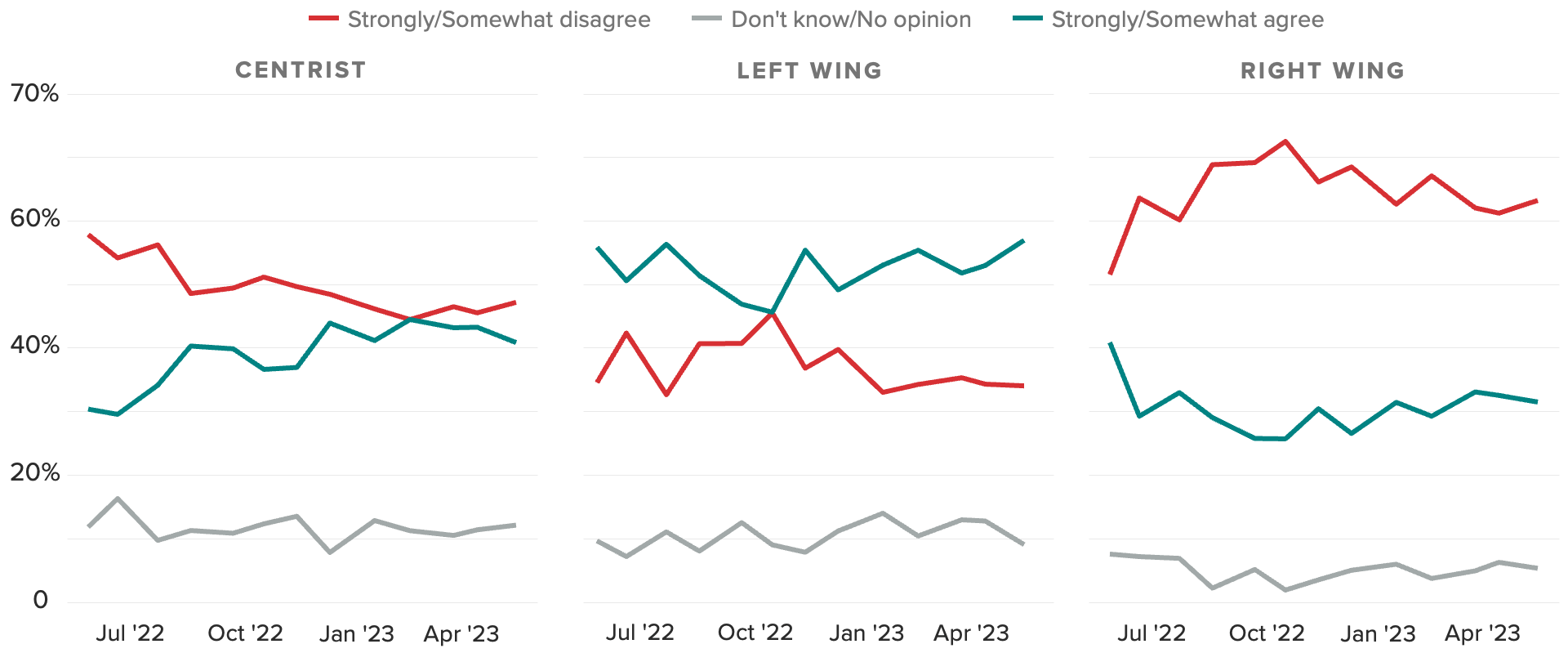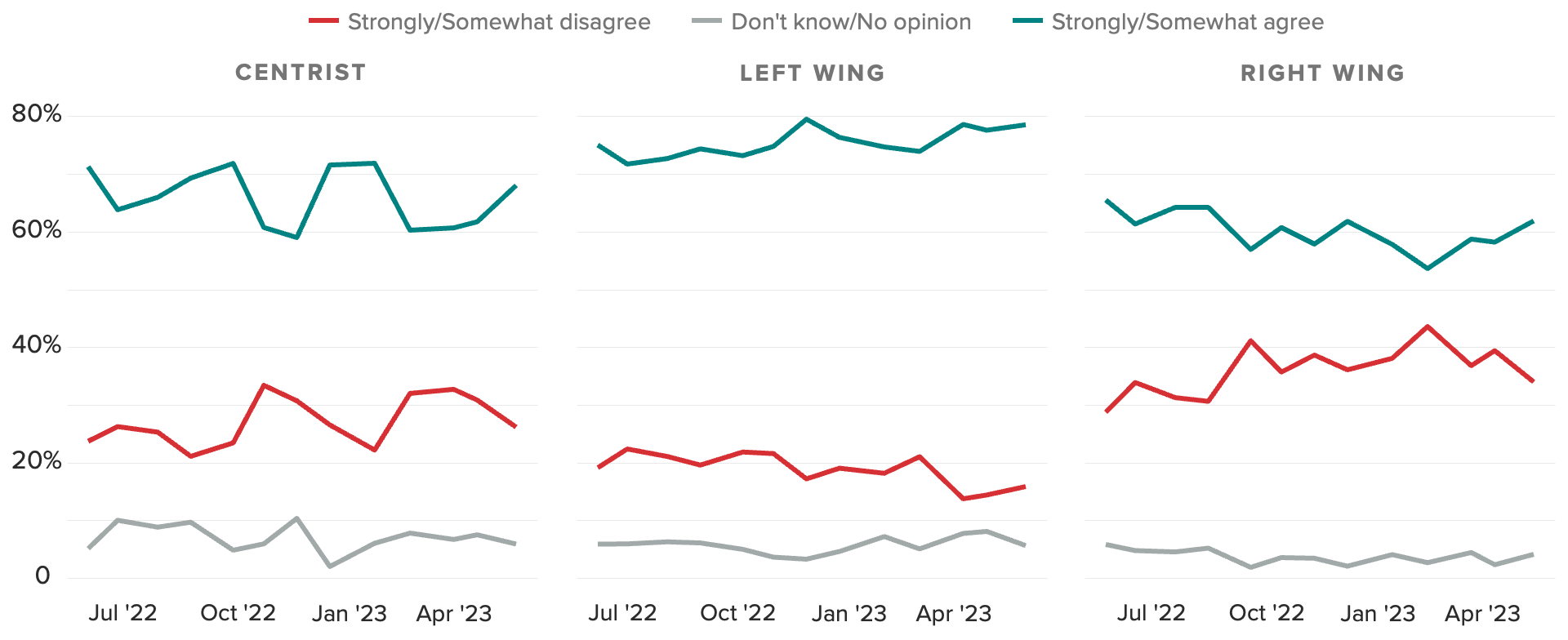Public Opinion on Immigration and Environment Show Why the Center Held in Spain’s Elections

Key Takeaways
A surprise collapse of support for the far-right Vox party in Spain’s July 23 snap general elections left no party able to form a government. Trends in Spanish views on issues like immigration and environmental protection show why the center held.
This ambiguous result leaves current Prime Minister Pedro Sánchez in place as caretaker during Spain’s six-month presidency of the E.U. Council, and he will continue to follow his Socialist Party’s agenda. But the election results change the game on some priorities.
Electricity market design reform now appears somewhat less likely, while smoother discussions on migration appear more so.
Sign up to get our analysis and data on how business, politics and economics intersect around the world.
Spain’s snap elections failed to produce a clear winner, with no party gaining a path to form a government. Although the center-right Popular Party won the most seats as expected, its presumptive coalition partner, the far-right Vox party, saw its support evaporate. This leaves the governing Socialist Party in place as a caretaker government for now, but without a strong mandate.
The timing of the inconclusive elections has implications beyond the Iberian peninsula since Spain assumed the European Union’s six-month rotating presidency on July 1. Sánchez’s government can now continue to follow its planned agenda. And while the ambiguity of having a caretaker government in place will lead to somewhat less credible Spanish leadership, the Spanish people sent a strongly centrist message that will impact Spain’s E.U. engagement on issues ranging from migration policy to energy and the environment.
We survey worldwide: Global data used in this analysis is available exclusively in Morning Consult Intelligence, an online platform tracking consumer attitudes daily on key indicators in 40+ markets. This survey asks respondents about their demographics, political beliefs, economic sentiment, brand perceptions and more.
Why our data is strong: What you’re reading reflects daily global tracking in Spain, a data set unique to Morning Consult. No other company surveys daily at this scale in as many markets as Morning Consult does.
Spain remains very pro-European Union
Spaniards hold very positive views of the European Union across the political spectrum, and have for some time. The Spanish political left is notably more favorable toward it. But the center and the right also hold overwhelmingly positive views of it, and about equally so. So while we expect the lack of a clear mandate from the Spanish people to impact the effectiveness of Spain’s E.U. agenda on the margins, even conservative Spaniards will want the caretaker government to be highly engaged.
Spanish Adults of all Political Stripes Like the European Union
Immigration remains a major wedge issue, but the center has trended more positively
Immigration is one area where political differences become starkly apparent. Self-identified right-wing Spaniards strongly disagree that more immigration would be a good thing for their country, and opposition to illegal immigration, particularly from Northern Africa, was at the center of Vox’s platform. Not only do left-wing Spaniards think the opposite, but centrist voters have moved decisively to be less skeptical of immigration over the last year. The center’s move away from anti-immigrant sentiment almost certainly played a part in Vox’s poor showing on Sunday.
Spanish Centrists Have Become More Positive About Immigration Over the Last Year

Environmental protection is worth economic trade-offs, especially absent energy inflation
While less dramatic than disagreements over immigration, opposite ends of the Spanish political spectrum also show different trends in their views on trade-offs between the economy and -environmental protection. Over half of right-wing Spaniards say environmental protections are important even if they cause slower economic growth or some job losses, but fewer are willing to tolerate the trade-off relative to one year ago. Some of this undoubtedly stems from higher costs of living due to energy price spikes linked to the war in Ukraine, and shows signs of reversing as economic pressures ease. At the same time, left-wing Spaniards have become even more likely to embrace these trade-offs, while centrists’ views trended sideways.
The Spanish Right Has Become Less Willing to Make Economic Tradeoffs to Protect the Environment, but the Trend May be Reversing

Sánchez goes to Brussels
Sánchez will follow his plan for the E.U. Council presidency as head of the caretaker government, but the election results somewhat alter Spain’s position in Brussels. For one, Sánchez’s government put climate policy at the center of its plans, especially electricity market reform motivated by the post-Ukraine invasion spike in retail energy costs. But the Popular Party has heavily criticized what it views as an interventionist policy. With Spain, the reform’s greatest champion, divided at home — and amid significant opposition from Germany and others — the future of the proposed measure is in question. Conversely, many E.U. countries are undoubtedly breathing a sigh of relief that Vox will not be part of a Spanish government that is supposed to play neutral referee in E.U. Council talks with the European Parliament on the new migration pact, paving the way for easier discussions.
Sonnet Frisbie is the deputy head of political intelligence and leads Morning Consult’s geopolitical risk offering for Europe, the Middle East and Africa. Prior to joining Morning Consult, Sonnet spent over a decade at the U.S. State Department specializing in issues at the intersection of economics, commerce and political risk in Iraq, Central Europe and sub-Saharan Africa. She holds an MPP from the University of Chicago.
Follow her on Twitter @sonnetfrisbie. Interested in connecting with Sonnet to discuss her analysis or for a media engagement or speaking opportunity? Email [email protected].


